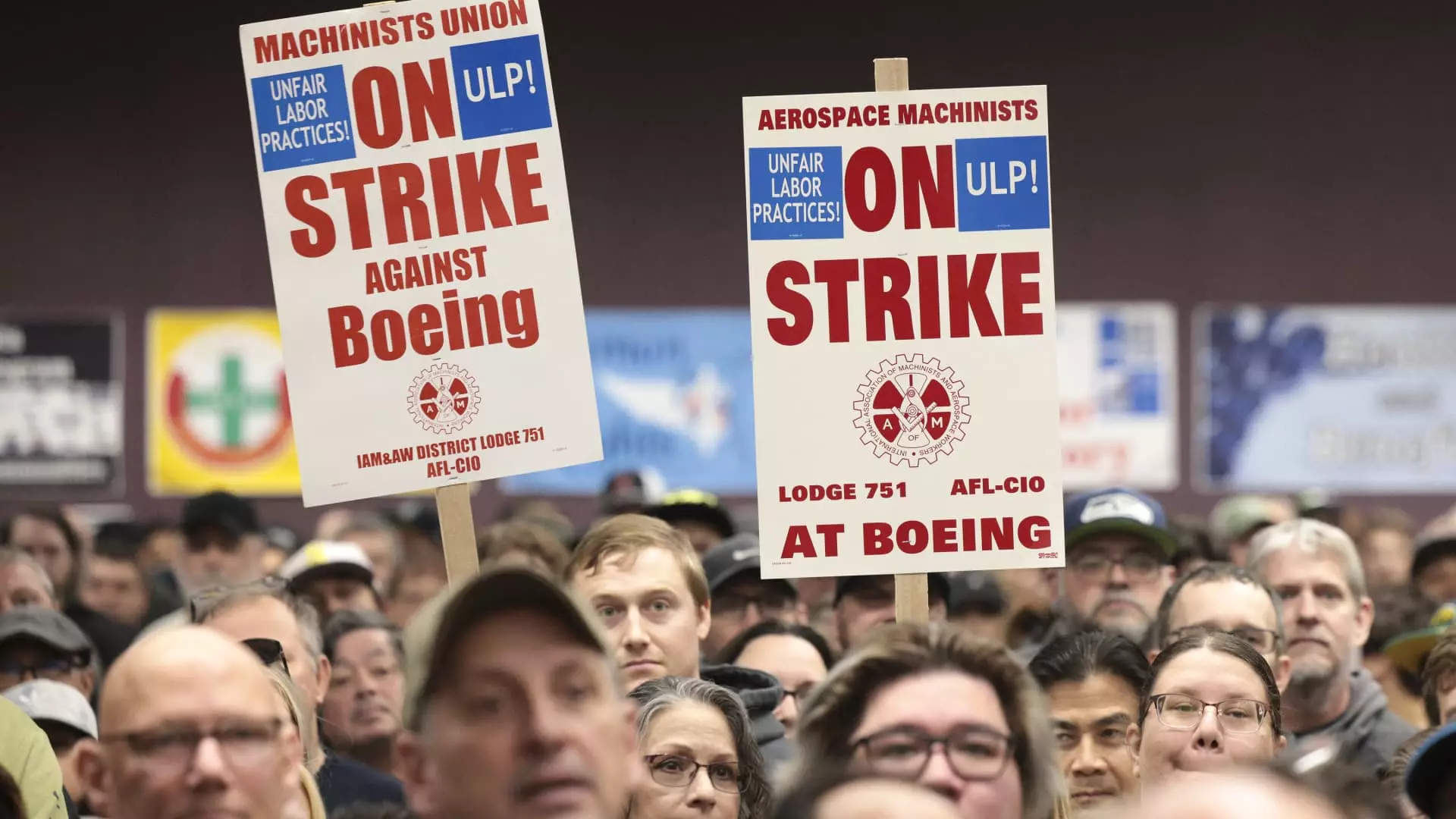In a significant development, Boeing and the International Association of Machinists and Aerospace Workers District 751 have released a new contract proposal that could potentially conclude the ongoing strike that has affected the company’s aircraft production. Announced on a recent Saturday, this agreement outlines a series of improvements that appeal to the concerns of over 30,000 striking workers, setting the stage for a ratification vote scheduled for this upcoming Wednesday.
The proposed contract showcases substantial benefits for the union members, featuring a staggering 35% increase in wages over four years, a $7,000 signing bonus, assured minimum payouts within an annual bonus framework, and enhanced contributions to 401(k) plans. These adjustments represent a marked departure from an earlier offer that was met with resistance from union members, leading to the protracted strike that began on September 13. The previous tentative agreement had only proposed a 25% wage increase over the same time frame, which was ultimately insufficient to satisfy the machinists.
Acting U.S. Secretary of Labor Julie Su played a critical role in mediating the negotiations, meeting with representatives from both sides to facilitate dialogue. The union’s statement following the announcement reflects optimism, indicating that the newly negotiated proposal is a significant improvement and merits consideration by its members. This context illustrates the complexity of labor negotiations, where initial offers may fail, but sustained negotiation can lead to satisfactory outcomes for both parties.
Boeing finds itself in a precarious financial position, facing significant challenges stemming from a safety crisis tied to the 737 Max aircraft. The company has also warned that it anticipates heavy losses, projecting charges of approximately $5 billion across its commercial and defense segments. The ramifications of the strike, coupled with these financial strains, underscore the urgency for Boeing to reach a resolution.
Moreover, the new CEO, Kelly Ortberg, appointed in August, is under immense pressure to restructure the company and restore confidence among stakeholders. Following the recent strike and with the impending delivery of a financial report, the approval of this contract could signify a turning point both for the workforce morale and for the company’s recovery efforts in a tumultuous market.
As the ratification vote approaches, the stakes are high for all involved. A favorable outcome for Boeing could stabilize production lines and restore some degree of normalcy, while also providing a much-needed boost in relations with the workforce. Conversely, a rejection of the proposal might prolong the strike, leading to further financial setbacks for the company.
This new contract proposal reflects a critical juncture in Boeing’s labor relations and operational stability. As workers prepare to cast their votes, the company’s future—and that of its highly skilled machinists—hangs in the balance. This negotiation serves not only as a lesson in the dynamics of labor relations but also highlights the crucial role of effective communication in overcoming industrial conflicts.



Leave a Reply